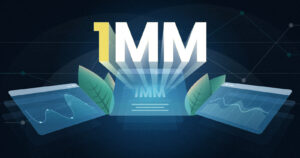Definition
Negotiable European Medium Term Note
A Negotiable European Medium-Term Note (NEU MTN) is a medium-term debt instrument issued by companies to raise funds with a maturity period of at least 1 year.
- A Negotiable European Medium-Term Note (NEU MTN) is a medium-term debt instrument issued by companies to raise funds with a maturity period of at least 1 year.
- Currencies: all possible currencies
- Currencies: all possible currencies
- Rate: fixed or variable (indexed to EONIA for example). The rate is freely set between the issuer and the investor. No coupon is paid between the issuing and the repayment. However, they may be issued at a price different from the nominal value or include a redemption premium. When the remuneration varies in accordance with an index clause that does not refer to a common interbank market, money market or bond market rate, the issuer must inform the Banque de France of such an arrangement before the issue
Presentation of the actors
All of them enjoy market stability, liquidity and competitive financing terms.
Issuers
They issue paper to obtain funds for their cash requirements. Issuers can be divided into financial and non-financial companies, although most are the former. The reform by Banque de France broaden the list of potential issuers.
Dealers/Brokers
The intermediaries are in charge of the liquidity of the market. They conciliate issuer’s financing need to investors investing interests by negotiating on both sides – they act as intermediaries in the negotiation of the characteristics of the issue. There are two types of intermediaries:
– Dealers which are banks. These are the main intermediaries. They can either buy the paper to resell it immediately to an investor or keep it in their book for later resale.
– Brokers connect the issuer and the investor in order to allow a transaction (brokerage). They don’t have the right to keep a Commercial Paper in their book.
Investors
NEUMTN’s investors are mainly money market funds that go through asset managers to make cash investments in NEU MTNs. These funds are mostly French and European. Some corporates buy also NEU MTNs to optimize their cash flow.
Issuing and Paying Agent
The issuers of negotiable debt securities are required to domicile the securities issued within the framework of their program, by the terms and conditions laid down in the General Regulations of the Autorité des Marchés Financiers (French financial markets authority), with one of the following entities:
- a credit institution approved in France;
- a branch referred to in Article L. 511-22 of the Monetary and Financial Code;
- an investment firm accredited in France and authorised to hold cash accounts;
- a branch referred to in Article L. 532-18 of the Monetary and Financial Code and authorised to hold cash accounts;
- the Caisse des Dépôts et Consignations;
- a legal entity established in France whose principal or sole purpose is the custody or administration of financial instruments referred to in point 5° of
- Article L. 542-1 of the Monetary and Financial Code.
Before agreeing to domicile the securities, the institutions acting as issuing and paying agents must ensure that the issuer complies with the terms and conditions of issue as set forth in Articles L. 213-1 A to L. 213-4-1 of the Monetary and Financial Code and the texts implementing said articles. Each issuing and paying agent must submit information on the market for the issuer’s securities to the Banque de France, in accordance with a process determined by the Banque de France.
Rating agencies
Rating agencies assess the risk of non-repayment by issuers in order to help negotiate the rate. The rating agency’s report is on the program sent to the Banque de France. A company may not be rated but have a program that is.
Guarantors
All the securities issued within the framework of the same program can benefit from a first demand guarantee by the conditions established by the order of the Minister of the Economy. In this case, the financial documentation must mention this and provide the same information on the guarantor as that provided on the issuer. List of the issuers whose programs may be guaranteed and the guarantors authorised to issue guarantees on the negotiable debt security market are mentioned in “Main features of short-term and medium-term negotiable debt securities“
Arrangers
Arrangers support and assist the issuer. They are credit institutions with specialized expertise in this type of program.
Clearer
Euroclear France is the central securities depository in the NEU MTN market. Its role is divided into 2 parts: recording all transactions and managing payments. They deliver the ISIN codes that are allocated to each trade in the NEU MTN market.
Regulator
The Banque de France monitors the market, publishes statistics, gives companies permits of issuance. And so, the system is governed by French law.
Process of creation of a NEUMTN
1- Introduction to the market
To become active on the market, a new issuer must send its program to the Bank of France. This program is public and includes the company’s terms of issuance, such as its ratings, guarantors, paying agents, etc. A new issuer is often accompanied by an arranger that helps better understand the market and take the first steps on it. This arranger can be an advisory firm or a market player (a domiciliary or a dealer / broker).
2- Expression of need and negotiation
An issuer will contact the dealers / brokers of its choice indicating the amount he wishes to borrow and its rates. Intermediaries can either buy the paper to resell it to investors or keep it.
Depending on the liquidity of the market, the negotiations can be a lasting process, and each feature of a paper can be renegotiated.
Requests and offers may also come from investors or dealers / brokers who wish to buy NEU MTN even if the issuer does not currently sell it.
3- Paper creation
The issuer will send a confirmation to his IPA. The latter will request an ISIN code to Euroclear, in order to identify the title.
Different confirmations are also sent between the back offices of the various parties of the paper (investors, dealer, broker, etc)





